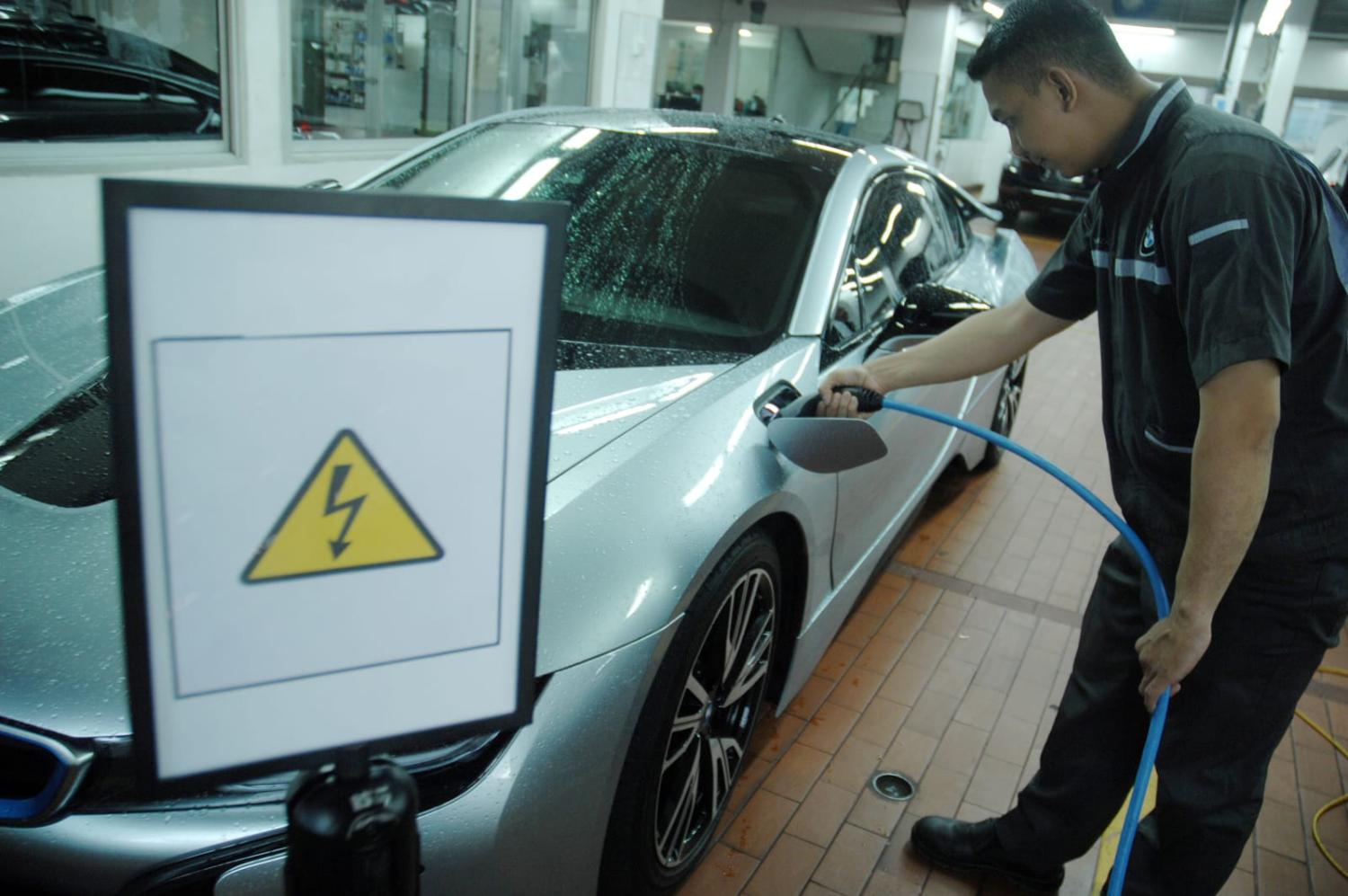With electric vehicles increasingly driving the roads, battery manufacturing has become a global industry. Many countries are involved. Australia, Canada, Chile, China and Congo are the largest suppliers of raw materials such as lithium, cobalt, nickel, graphite, and copper. Yet it is China alone that dominates the EV battery supply and value chain, producing nearly 85 per cent of the world’s EV batteries.
Other nations are hoping to break this stranglehold, Indonesia prominent among them.
Indonesia introduced a tax exemption in April as part of its incentive scheme for EVs, available to 250,000 two-wheelers and 35,900 four-wheelers until December 2023. The goal is to speed an economic transformation and investment in the upstream and downstream segments of the EVs industry. The further aim is to reduce carbon gas emissions and dependence on fossil fuels.
However, there are still brakes on the development of EVs in Indonesia. Charging stations are few and far between in the country, and can be costly. Moreover, EVs continue to be more expensive than conventional vehicles, due to the high cost of imported manufacturing technology and materials. Indonesia’s domestic automotive industry has limited capacity.
While US company Tesla recently announced plans to open a new battery factory in Shanghai, other automakers, including from China, are looking to Southeast Asia. Indonesia’s President Joko Widodo has announced the country’s first integrated end-to-end EV battery factory will be in North Kalimantan. The plan is to begin production in 2024, with two major EV battery companies involved, LG Electronics and Contemporary Amperex Technology.
Indonesia is already a major player in the global upstream EV market boasting a high concentration of the world's nickel reserves. This natural resource has been recognised as a chance to grow a premium local EV battery sector. Even without the production side, which involves heavy investment, raw materials are estimated to account for approximately 65 per cent of battery production costs.
Along with Indonesia’s ambition for EV batteries come a number of environmental concerns. Several local companies are building smelters to process nickel as a raw material for battery production, but analysts report that the environmental standards for nickel refineries in Indonesia are far behind the global average. Concerns have been raised about high-pressure acid leaching as a popular nickel processing technique, which produces hazardous tailings waste. Existing environmental controls should be strengthened to ensure the rate of toxic chemicals in water do not rise beyond acceptable levels.
Supply chain traceability is a critical prerequisite for sustainable product certification as this allows organisations to ensure that the raw materials they use are produced in an environmentally favourable and socially responsible manner.
Indonesia must also consider downstream waste from spent EV batteries. One of the potential solutions to the EV battery waste problem is to explore second-life uses and remanufacturing. Reusing EV batteries can be done in a variety of ways, including repackaging them for stationary storage systems, using them for grid stabilisation, and even recycling the materials inside the batteries to make new batteries or other products.
Compared to using newly manufactured batteries, deploying used batteries for energy storage can result in significant cost savings. To ensure that used EV batteries are properly recycled, the government must establish an integrated system to manage them. The supply chain has to extend from raw materials, production and into a life beyond.

